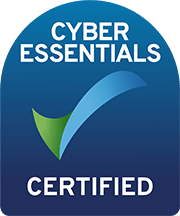Updated Coronavirus Job Retention Scheme (CJRS) as of 6 April 2020
In respect of eligible individuals who are not employees
Following from the guidance issued by HMRC on the CJRS, further guidance has now been issued in respect of eligible individuals who are not employees.
As well as employees, the grant can be claimed for any of the following groups, if they are paid via PAYE:
• office holders (including company directors)
• salaried members of Limited Liability Partnerships (LLPs)
• agency workers (including those employed by umbrella companies)
• limb (b) workers
The guidance below sets out specific considerations for those individuals who are paid via PAYE, but who are not necessarily employees in employment law. Unless explicitly set out below, all other guidance is applicable to these cases, and should be followed.
Office Holders
Office holders can be furloughed and receive support through this scheme. The furlough, and any ongoing payment during furlough, will need to be agreed between the office holder and the party who operates PAYE on the income they receive for holding their office. Where the office holder is a company director or member of a Limited Liability Partnership (LLP), the furlough arrangements should be adopted formally as a decision of the company or LLP.
Company Directors
As office holders, salaried company directors are eligible to be furloughed and receive support through this scheme. Company directors owe duties to their company which are set out in the Companies Act 2006. Where a company (acting through its board of directors) considers that it is in compliance with the statutory duties of one or more of its individual salaried directors, the board can decide that such directors should be furloughed. Where one or more individual directors’ furlough is so decided by the board, this should be formally adopted as a decision of the company, noted in the company records and communicated in writing to the director(s) concerned.
Where furloughed directors need to carry out particular duties to fulfil the statutory obligations they owe to their company, they may do so provided they do no more than would reasonably be judged necessary for that purpose, for instance, they should not do work of a kind they would carry out in normal circumstances to generate commercial revenue or provides services to or on behalf of their company.
This also applies to salaried individuals who are directors of their own personal service company (PSC).
Salaried Members of Limited Liability Partnerships (LLPs)
Members of LLPs who are designated as employees for tax purposes (‘salaried members’) under the Income Tax (Trading and Other Income) Act (ITTOIA) 2005 are eligible to be furloughed and receive support through this scheme.
The rights and duties of a member of an LLP are set out in an LLP agreement and in the absence of an agreement, default provisions in the LLP Act 2000, based upon company and partnership law. Such an agreement may include separate agreement between the LLP and an individual member setting out the terms applicable to that member’s relationship with the LLP.
To furlough a member, the terms of the LLP agreement (or any such agreement between the LLP and the member) may need to be varied by a formal decision of the LLP, for example to reflect the fact that the member will perform no work in the LLP for the period of furlough, and the effect of this on their remuneration from the LLP.
For an LLP member who is treated as being employed by the LLP (in accordance with s863A of ITTOIA 2005), the reference salary for this scheme is the LLP member’s profit allocation, excluding any amounts which are determined by the LLP member’s performance, or the overall performance of the LLP.
Agency Workers (including those employed by umbrella companies)
Where agency workers are paid through PAYE, they are eligible to be furloughed and receive support through this scheme, including where they are employed by umbrella companies.
Furlough should be agreed between the agency, as the deemed employer, and the worker, though it would be advised to discuss the need to furlough with any end clients involved. As with employees, agency workers should perform no work for, through or on behalf of the agency that has furloughed them while they are furloughed, including for the agency’s clients.
Where an agency supplies clients with workers who are employed by an umbrella company that operates the PAYE, it will be for the umbrella company and the worker to agree whether to furlough the worker or not.
Limb (b) Workers
Where Limb (b) Workers are paid through PAYE, they can be furloughed and receive support through this scheme.
Those who pay tax on their trading profits through Income Tax Self-Assessment, may instead be eligible for the Self-Employed Income Support Scheme (SEISS), announced by the Chancellor on 26 March 2020.
How ansteybond can help?
If you have agreed with your employees that they will be classed as “furloughed workers”, ansteybond will be able to assist with the reporting of this change to HMRC via their new portal for this scheme. Please contact Jennifer Gordon further information.
Anstey Bond HR Limited can provide assistance in respect of negotiating the change in the employees’ status, review of contracts of employment, drafting of letters to opt for the CJRS , advice on employment law related issues with working from home, GDPR issues and any other HR and employment law related query you may have. We offer a fixed rate subscription which can be paid monthly with interest free payments. Please contact Claudia Rowell for further information.
We are ourselves issuing regular updates via our website and e-mail cannons. If you are not receiving these and would like to be added to the list please e-mail [email protected] with the subject “Add me to your COVID-19 e-mails”.


